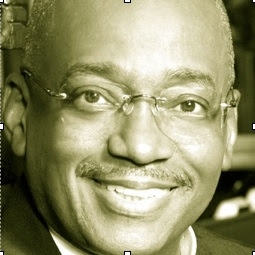
America’s Theologian and Social Activist to Teach Free, Online Course
“Faithful Dissent:
Loving Our Way into a Brighter Tomorrow
with Ed Bacon and Stanley Hauerwas”
Open to anyone in the world September 11-25
Register Today
August 21, 2017, BLOOMFIELD HILLS, MI – On September 11-25, 2017 a free, worldwide, online course will be offered to the world. Ed Bacon, author and former rector of All Saints’ Episcopal Church in Pasadena, CA, and Stanley Hauerwas, a Duke University ethicist whom TIME Magazine called America’s theologian, will teach a free, online course called Faithful Dissent: Loving Our Way into a Brighter Tomorrow with Ed Bacon and Stanley Hauerwas. Students will be able to sign up for free and take this 45-minute, pre-recorded course with thousands of students around the world, anytime for a two-week period.
“We live in increasingly divisive times,” says Bacon, “As Christ’s reconcilers in the world, we are called to act in ways that bring Christ’s love for the marginalized into the public sphere.” Bacon, the retired rector of All Saints’ Episcopal Church in Pasadena, California, led his congregation to take political action on many issues. This contrasts with ethicist Stanley Hauerwas’ who says dissent is primarily a stance Christians take in opposition to the world. “Christ calls us to be witnesses,” he says, “this is how the world knows it’s the world.”
“Faithful Dissent” is a series of video lectures, quizzes, and discussions aimed at helping us learn how to faithfully disagree. No special software is required. It will take an average learner about 45 minutes to complete. Registration is free and open to all. Click here for more information and to register or go to churchnext.tv > Menu > The Big Class.
You can register for the course right now, but it will not be available to take until Monday, September 11. It will remain open and free through Monday, September 25 – that means you can take it for free anytime, 24/7, during that time period. If you register today we’ll send you an email to remind you.
This course comes to us free thanks to the generosity of: The Episcopal Church, Forward Movement, FORMA, Duke Divinity School, and ChurchNext.
Want to take The Big Class with a Group?
We want to help! So we’ve assembled some materials to assist you in publicizing and leading this class in a congregational setting. First off, we have a guide for you, it’s called a Launch Plan for Congregations. In it you will find helpful information to assist you leading this class in a small group setting.
Also, you may want some help publicizing The Big Class, so we’ve put together this Poster, and Bulletin Inserts. Let us know if there’s any other way we can help by contacting us at hello@churchnext.tv.




 Psalm 98:5: Sing praises to the Lord with the lyre; with the lyre and the sound of melody.”
Psalm 98:5: Sing praises to the Lord with the lyre; with the lyre and the sound of melody.”
 bout living temporarily with the McKee family, in which the father was “such a strict Presbyterian that on Sunday no one was allowed to laugh or even smile. They could only read the Bible and the catechism and talk gravely of religious subjects” (1). Mr. McKee’s approach may be a little extreme for our modern sensibilities, but his idea that religion and laughter should be strictly divorced from one another does resonate to some extent in contemporary religious culture. While our priests may tell the occasional joke from the pulpit on Sundays, many of us retain the idea that religious belief is no laughing matter.
bout living temporarily with the McKee family, in which the father was “such a strict Presbyterian that on Sunday no one was allowed to laugh or even smile. They could only read the Bible and the catechism and talk gravely of religious subjects” (1). Mr. McKee’s approach may be a little extreme for our modern sensibilities, but his idea that religion and laughter should be strictly divorced from one another does resonate to some extent in contemporary religious culture. While our priests may tell the occasional joke from the pulpit on Sundays, many of us retain the idea that religious belief is no laughing matter.